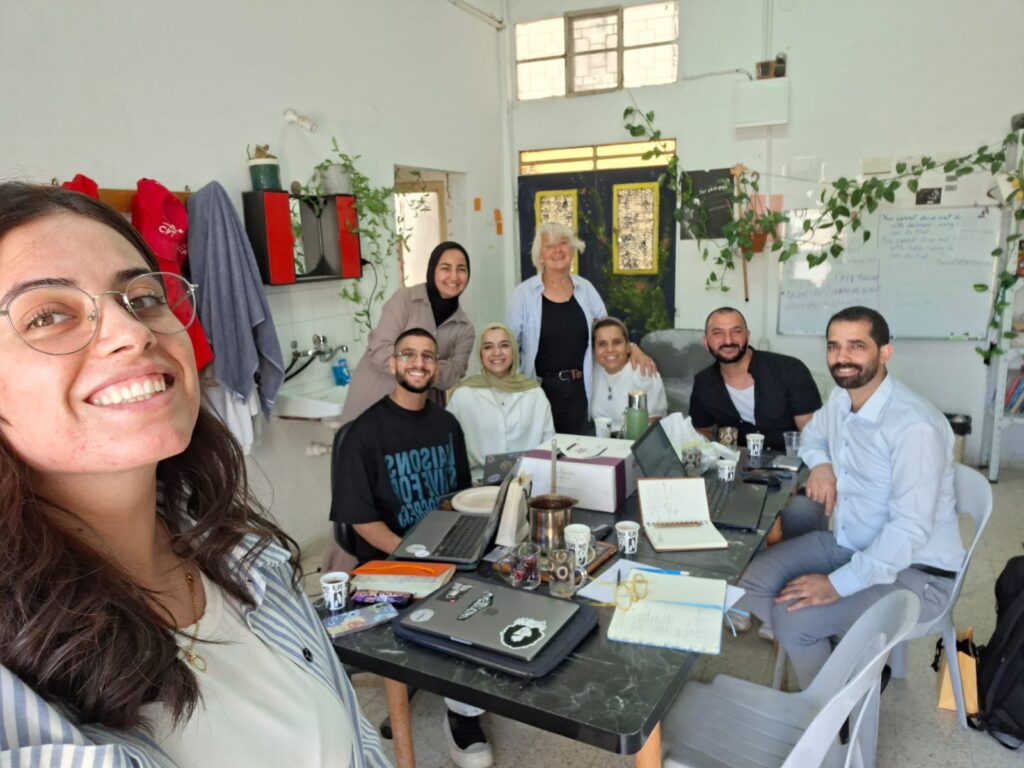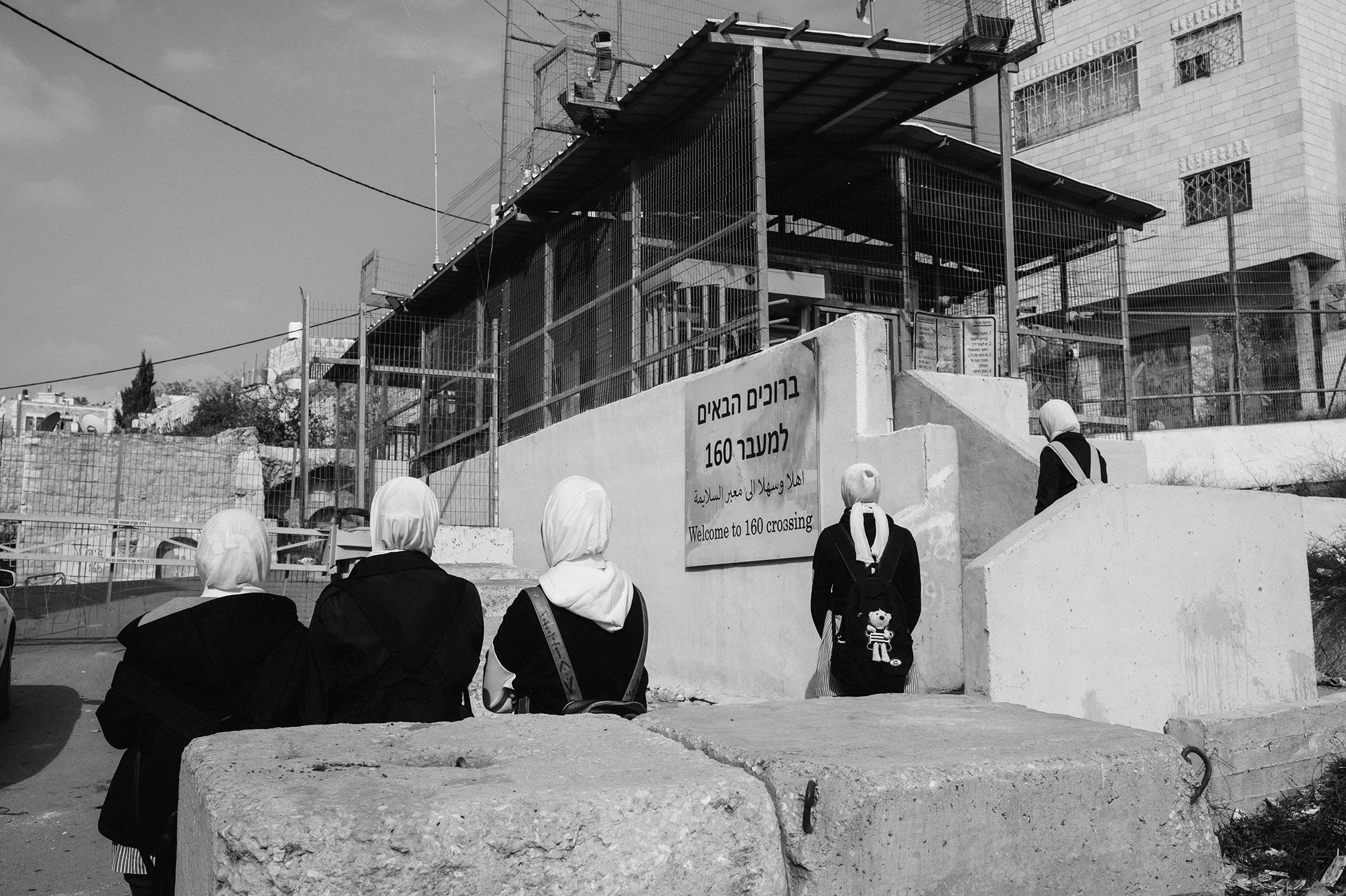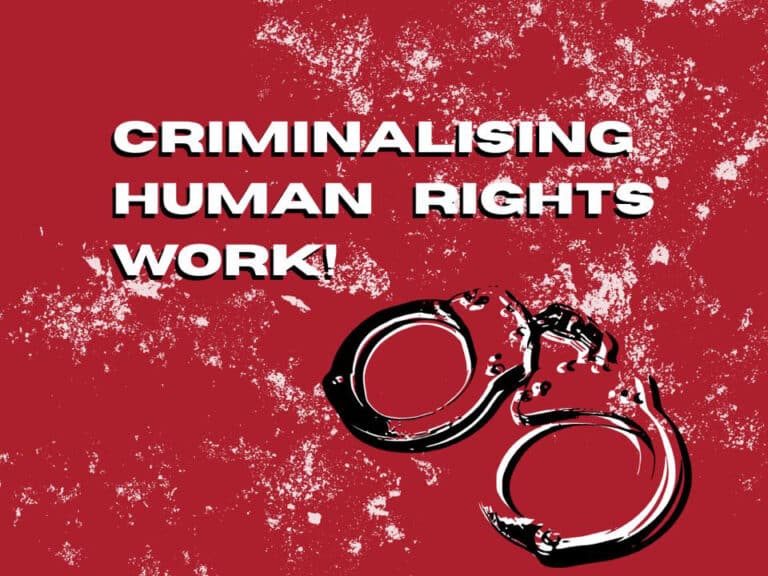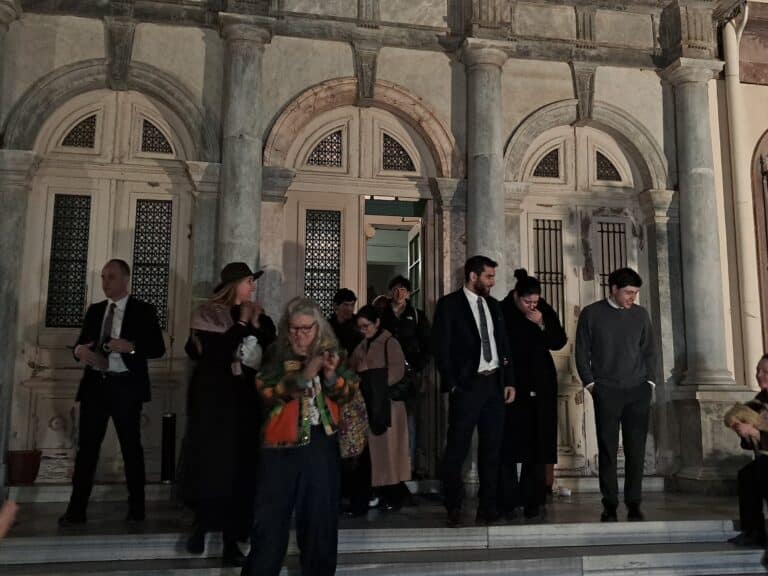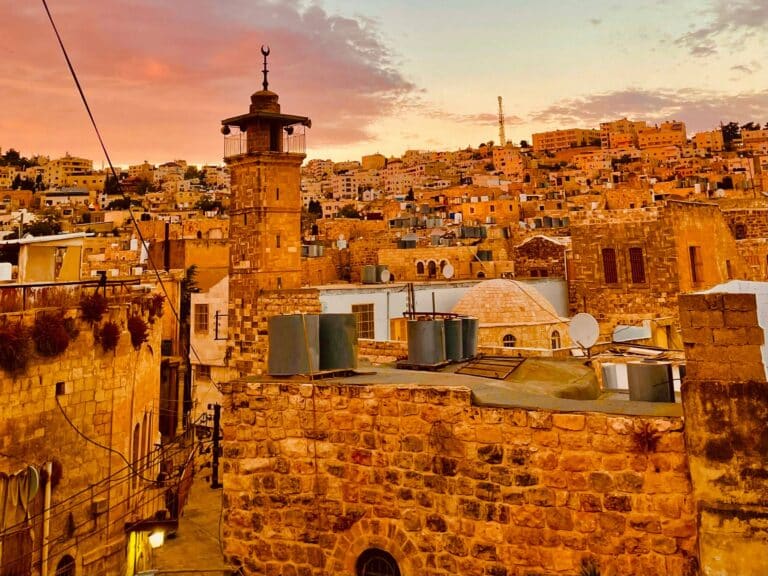Welcome to Checkpoint 160, the notorious Salaymeh crossing in Hebron, Palestine. I spent quite a bit of time standing a few yards down the road from it, observing, at the start and end of the school day in May of both 2022 and 2023, and I made friends with some of the people who lived in its shadow. This August, 2025, I was at last able to go back and ask how things have changed since the war on Gaza began.
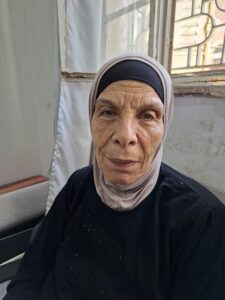
Kawthar, a softly spoken retired nurse, lives alone in a tiny house that overlooks the checkpoint very closely. There was an episode in 2023 – both scary and comical – when my team mate and I investigated a grenade that might or might not have been tear gas or a sound bomb. It had landed in the small patio area between her house and the checkpoint and when Kawther, daringly, asked how it got there, the soldiers said “it flew”. Fortunately, it didn’t explode as we removed it to a nearby skip.
This time, Kawther asked to meet me and my team mate away from her house. If she has visitors, the soldiers accuse her of providing a bypass to the checkpoint for them. Which is nonsense. She is virtually a prisoner because of the checkpoint, which is closed for 36 hours around the Jewish Sabbath each week and every day between 10pm and 6am. It’s often closed at random at other times.
A big problem is her water supply, which has stopped. It’s no surprise that the municipality has failed to do anything at all. Musbah, the kindly grocer who lives on the other side of the checkpoint, tried to run a hose across from his house to hers until the soldiers threatened to shoot him if he didn’t remove it.
She had a visit from the soldiers in the middle of one night. They demanded she hand over her house key, which she did. Later they came and offered it back, saying they would come for her later. They didn’t. But she was terrified.
She gets shouted at a lot, just for the sake of routine harassment, it seems.
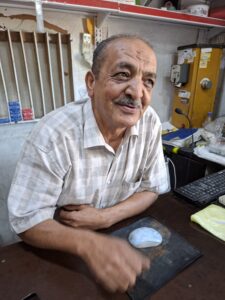
Across the road, her friend and ours, shopkeeper Musbah, welcomed us warmly as ever. I asked about his seventeen year old son who two years ago had been beaten, arrested and detained by the soldiers simply for being outside the shop while his father was saying his evening prayers.
Was he still in jail, I asked? “No, but we had to pay a lot of money to get him out”, said Musbah. There was, of course, no trial. Fines paid in return for releasing untried detainees is a rich source of income for the Israeli government!
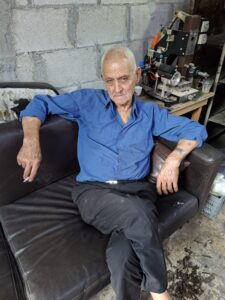
A little further down the road is Abu Ashraf’s shoe factory, in a building which is also home to his five sons and their families. I asked after the newborn who two years ago was struggling with lung problems because of daily exposure to tear gas, and – good news – I was shown a photo of a bonny beaming toddler, well now, and his baby sister. We saw loads of kids (apparently there are 40 grandchildren) who were excited by the visit and chatted away happily. But Abu Ashraf told us how, ten days previously, the kids were playing outside and, as they shouted “soldiers!” and ran for their homes, the soldiers fired live ammunition up the street.
Soldiers do random patrols around the area and, yes, they still throw tear gas and sound bombs. Many people have moved out of the area, says Abu Ashraf, and if, for example, a family is expecting a baby, they’ll rent a flat outside for a short period in case checkpoint closures mean they can’t get to hospital. Although everyone at the factory looked well, business has suffered a lot because of the restrictions and it’s getting worse – serious, with at least forty people depending on it for income. Sometimes, he says, they only have bread and tomatoes for the evening meal. You can see from his expression in the photo that Abu Ashraf is angry. But he is sure there will be a reckoning before long.
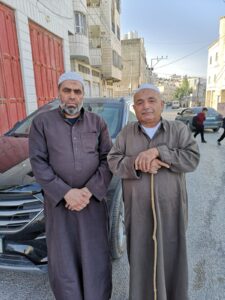
I was disappointed not to be able to track down Abu Fathi and Abu Mahmoud, two older gentlemen from the Parent’s Committee, who used to monitor the checkpoint with us in 2023 (when I took this photo), chasing dallying children off to school and discouraging them from throwing even the tiniest of stones in the rough direction of the soldiers. I am assured that their job will be much easier now that the soldiers have started to use live ammunition.
No checkpoint duty during my visit this August. Next week the schools start the new semester. There will be less children in these schools, which so many pupils need to reach via Salaymeh. Many parents are moving their kids to schools where the journey is safer, if longer. In any case, it’s likely that schools will only open three days a week as the Municipality still isn’t paying its teachers. During semester time CPT will be there day in, day out, although there are fewer organisations with which to share the work across Hebron – the Ecumenical Accompaniment Programme in Palestine and Israel, for example, no longer covers Hebron since the war. The team will be incognito; wearing a recognisable gilet these days makes you a target rather than the opposite. They will be appreciated by the children, the parents and the schools.
One young teenager testified to CPT:
“Sometimes soldiers laugh at me when I pass. They block the turnstile on purpose and make me go back and forth like it’s a game. I wanted to run, but I was too scared.”
And a slightly older student says:
“You cannot stop the soldiers from searching us. But it matters that you are there, that you are watching us, that you care. It changes how we feel when we walk past them. It matters to us more than you know.”
I think that the monitoring will be even riskier than it has been in the past.
It felt risky to me, traveling to to Hebron for just two weeks this time. Always tense, the city now fairly crackles. I was particularly unsettled by the cameras and lights the IOF have placed on many commandeered rooftops, and especially by the drones, sounding like monstrous mosquitos, that flew past the balcony of the CPT house one night when there was a Jewish festival underway. I appreciate all the more the welcome (so much warmer than Salaymeh’s!) given me by the team and by everyone I spoke to and took photos of. Thanks to the team, for making time, at a super busy time for the work generally, to facilitate and interpret my visits for me, and especially to Baha’a, who went above and beyond. Such patience!
Above all, I’m grateful for my friends’ constant and courageous willingness to do whatever can be done to resist the genocide, the war and the Occupation.
Goodbye Checkpoint 160. I would just love to return and find you gone.
